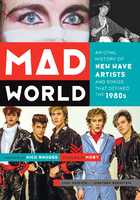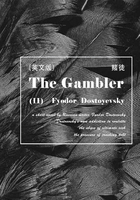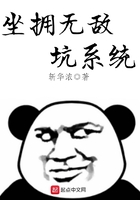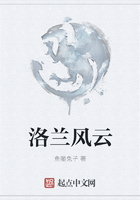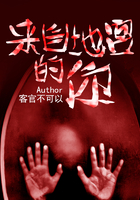THE RAIN beat down steadily. Occasionally the wind threw great splashes against the executive office windows. The sound brought a smile to Michael Hobbs's face. It made him reflect on the beating he was taking as president and CEO of a midsize, once-successful, home products company.
Michael had taken over leadership a little over a year ago, and he had instinctively done his usual thing—seize the checkbook and centralize all decision making. He had developed quite a reputation since his MBA program as a dynamic, high-energy manager. His belief was that lack of leadership at the top was usually the cause of a company's problems. As a hands-on manager, it didn't take him long to address that void. He was decisive and in charge, but for some reason his approach was not working this time.
Another sheet of rain blasted the office windows, rousing Michael from his trance. He looked up at the sign on his desk given to him by the consultant his board had recommended he should hire. The sign was really starting to bother him, but he didn't have the nerve to take it down. It read:
The kind of thinking that led to past success will not lead to future success.
He recalled the consultant putting the sign there after giving Michael and his management team the results of a study conducted on their industry, their competition, and the company itself. It reminded Michael of a painfully obvious fact that the study had confirmed: Management's thinking is the first thing that has to change.
The board had insisted that Michael use this consultant, because they felt the home products industry was changing so rapidly that he could no longer figure everything out alone. They felt he needed help. Michael vehemently disagreed, yet he had to admit that the consultant's study did bring up some interesting points.
In no uncertain terms, the study warned that the company would be crushed by its competition unless all thinking, structure, processes, and action conformed to four critical organizational attributes.
The company needed to be better at being:
Customer and quality driven
Revenue- and cost-effective
Fast and flexible in responding to market changes
Continually innovating
Now, as he had so many times before, Michael mentally reviewed each item on that list.
1. CUSTOMER AND QUALITY DRIVEN
No one needed to convince Michael that in today's market, success begins with customers. But somehow, many companies had lost sight of the need to focus on quality and dependability, as perceived by the customers. The do-it-yourself explosion had made him and others feel that they only had to get the new products out quickly to keep pace with competition (or, better yet, stay ahead). But now quality was again being thrust into the equation. Change had come with blinding speed. With the sophistication of today's customers and the variety of products available on the global market, the study insisted that any organization not responsive to customers' wants and needs was doomed to be second-rate or soon out of business! And he did not want his company to be one of those out of business soon.
2. REVENUE- AND COST-EFFECTIVE
The importance of this attribute didn't surprise Michael, either. He had always been one to focus on controlling costs. Too many companies had begun to believe during the technology revolution that all that mattered was top-line revenue. How wrong they had been. Cost increases, together with fierce pricing battles, had forced companies to shave margins to a fraction of what they had been. And it was easy to let margins slip into negative territory. Now was clearly a time when companies had to build revenue streams in ways that were also cost-effective.
3. FAST AND FLEXIBLE IN RESPONDING TO MARKET CHANGES
The third attribute reminded Michael of just how difficult it had become to manage effectively in a global economy. Markets could shift so quickly with customer demands being driven from all corners of the world. Competitors could appear from any direction with technological ease. And if your company did not respond, revenue and market share could drop drastically.
The study pointed out that rapidly changing customer needs and wants made cumbersome decision making and implementation processes deadly for a company. In the time it took to collect information for his management team to make decisions and then move the decisions through the company hierarchy, the customer would be gone. On the other hand, if he let people throughout the organization act freely, chaos would follow and costs would go through the roof. His concern reflected a real dilemma for the company.
Customers wanted their contacts in the company— front-line employees—to make decisions, solve problems, and take action right on the spot. Clearly, quicker, on-the-spot decisions were better, and Michael was reluctantly beginning to accept that point. But he wondered how he as CEO could keep control of such a rapidly changing organization. He was afraid his people would make too many mistakes that would cost the company too much money.
4. CONTINUALLY INNOVATING
Everywhere Michael turned, he heard that lifelong learning had to become a norm in his company. Everyone in the company would have to embrace the vision of a corporation that would be better today than it was yesterday and better tomorrow than today. Michael knew that would be a difficult task— creating an organization that would steadily and consistently outdo itself. But even more difficult would be focusing the power of people to innovate continually. He knew that without innovation a company is dead today!
Michael was growing more anxious by the moment. He realized the consultant's recommendations were right. He knew that if the company were to survive, he would have to create an organization that was simultaneously customer and quality driven, revenue- and cost-effective, fast and flexible, and continually innovating. But how?
He kept hearing that he needed to find ways to engage people throughout the company. They had to become owners and entrepreneurs in spirit. He had to release all the untapped creative energy of the people in the company and yet not lose control of the company. People had to be expected to take responsibility for their actions and decisions, while making full use of their skills and abilities. They had to be engaged in addressing all four of these attributes for success.
Empowerment, thought Michael. That's what some people say we need, but he felt he had already tried to empower people with little success. Six months ago he had reduced some of the layers of management in the company and put out a statement that everyone was authorized to make decisions that would help them better serve customers, control costs, increase revenues, and keep the company innovating. He had told his management team to follow up with this change in decision making.
Six months, Michael mused, yet nothing seems any different. As he looked out at the driving rain, he wondered, Where is the spirit of responsibility at work? Where is all that desire to make a contribution?
The sad truth was that throughout the organization people were acting no differently than they had when the company was a multilayered bureaucracy. Few people seemed willing to step up to the plate and take on the challenge. And where some people had taken action, they had often created problems due to their lack of understanding of the implications of their actions. They had had to be pulled back a little. A pall of reluctance hung over the workplace.
As Michael took the pulse of the company—meeting with employee groups, asking questions of the front line—he had yet to see people acting empowered. In fact, they went about their business in the same manner as when the company was dominated by its deadly bureaucratic mind-set. With all the talk about the need for empowerment, Michael thought the shift would happen spontaneously once he authorized people to make more decisions on their own. Obviously, that was not the case.
Everywhere Michael looked, employees' faces were masks of denial. He sensed that to them, the word empowerment was just that, a word—the E word. It was driving him crazy! And it was not helping his company, either.
He wondered if empowerment was just another buzzword. Or was there something about it that he just did not understand? On the surface it seemed people would want to use their talents and have the freedom to make decisions. They said they wanted to be more involved! So what was wrong? He had to find out before the company sank any deeper.




